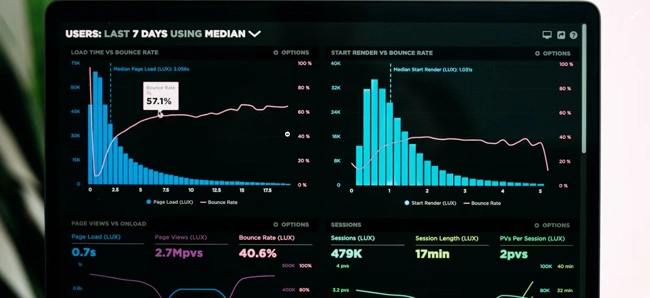Role of Data Science in the Modern World: Unlocking Insights and Driving Innovation
Role of Data Science in the Modern World: Unlocking Insights and Driving Innovation
In today, data-driven world, a new discipline has emerged as the cornerstone of innovation and strategic decision-making: data science. The sheer volume of information being generated every second—from social media interactions and e-commerce transactions to sensor data from industrial machinery and healthcare records—is staggering. This "big data" holds immense potential, but without the right tools and expertise, it remains a chaotic, untapped resource. Enter data science, the interdisciplinary field that combines statistics, computer science, and domain knowledge to extract meaningful insights from this complex data. It's the engine that transforms raw information into actionable intelligence, enabling businesses, governments, and researchers to solve complex problems and predict future trends.
The benefits of data science are far-reaching, fundamentally changing how we understand our world and operate within it. At its core, data science empowers organizations to make informed, evidence-based decisions rather than relying on intuition or guesswork. It provides a systematic approach to identifying patterns, building predictive models, and optimizing processes. By leveraging sophisticated algorithms and analytical techniques, data science helps companies understand customer behavior, mitigate risks, improve operational efficiency, and develop innovative products and services. In essence, it provides a competitive advantage that is no longer a luxury but a necessity for survival and growth in a rapidly evolving market.
This blog post will delve into the profound benefits of data science and explore its transformative use across various industries. We'll examine how this powerful discipline is being applied to solve real-world problems, from personalizing marketing campaigns to revolutionizing healthcare diagnostics. Join us as we uncover the secrets behind data science and discover how it is shaping the future of business and society.
The Transformative Benefits of Data Science in Business Operations

The impact of data science on business operations is undeniable, offering a suite of advantages that can lead to increased profitability, improved efficiency, and sustainable growth. By moving away from reactive, instinct-based decisions and embracing a data-driven culture, companies can unlock new opportunities and gain a significant edge over competitors. The core benefit lies in its ability to provide a clear, objective picture of a company's performance, customer base, and market landscape.
What are the main benefits of using data science?
Data science delivers a multitude of benefits that permeate every aspect of an organization. By analyzing vast datasets, companies can gain a deeper understanding of their operations, customers, and market. This leads to more effective strategies and better outcomes. Here are some of the most significant benefits:
- Informed Decision-Making: Data science provides the evidence needed to make confident, strategic decisions. Instead of guessing, leaders can use predictive models and data-driven insights to guide their choices, whether it's launching a new product, entering a new market, or optimizing supply chains.
- Predictive Capabilities: One of the most powerful applications of data science is its ability to forecast future outcomes. By analyzing historical data, algorithms can predict everything from customer churn and market trends to potential equipment failures. This foresight allows businesses to proactively address challenges and capitalize on emerging opportunities.
- Enhanced Customer Experience: Data science enables a deep understanding of customer behavior, preferences, and needs. This insight allows companies to personalize marketing efforts, recommend products, and tailor services, leading to higher customer satisfaction and loyalty.
- Risk and Fraud Detection: Industries like finance and insurance rely heavily on data science to identify and prevent fraudulent activities. Machine learning models can analyze transaction patterns in real-time, flagging unusual behavior that might indicate fraud more accurately and quickly than manual methods.
- Increased Operational Efficiency: By analyzing data from various operational processes, companies can identify bottlenecks, optimize workflows, and reduce waste. For instance, in manufacturing, data science can predict when machinery needs maintenance, preventing costly downtime and improving overall productivity.
- Innovation and Product Development: Data science reveals unmet customer needs and market gaps. By analyzing customer feedback, usage data, and market trends, companies can innovate and develop new products or features that are more likely to succeed.
How is data science used in business decisions?
Data science is the backbone of modern business decision-making. It transforms raw data into a strategic asset, influencing everything from daily operations to long-term planning. The process typically involves several key steps:
| Step | Description | Example in a Retail Company | |
| Data Collection | Gathering raw data from various sources. | Collecting customer purchase history, website clicks, and social media interactions. | |
| Data Cleaning | Processing and organizing data to ensure accuracy and consistency. | Removing duplicate entries, correcting errors in customer addresses, and standardizing product names. | |
| Data Analysis | Applying statistical methods and algorithms to find patterns and trends. | Identifying that customers who buy product A are also likely to buy product B, and that sales of product C spike in the winter. | |
| Model Building | Creating predictive models to forecast future outcomes. | Building a machine learning model to predict which customers are most likely to respond to a new marketing campaign. | |
| Visualization & Reporting | Presenting findings in clear, digestible formats for decision-makers. | Creating a dashboard that shows real-time sales performance, customer demographics, and inventory levels. | |
| Decision & Action | Using the insights to make informed strategic decisions. | The marketing team launches a targeted campaign for product C during the winter, and the inventory team adjusts stock levels based on the sales forecast. |
This systematic approach allows businesses to move beyond simple reporting and truly understand the "why" behind the numbers, leading to more impactful and successful business outcomes.
The Diverse Applications of Data Science in Industries

The power of data science is not confined to a single sector; its applications are incredibly diverse, revolutionizing industries and creating new possibilities. From healthcare and finance to retail and transportation, data science is proving to be an indispensable tool for progress.
How is data science used in different industries?
The application of data science is tailored to the specific needs and challenges of each industry, but the core principle of using data to drive insights remains the same. Here's a look at how data science is making an impact across various sectors:
- Healthcare: Data science is revolutionizing medical diagnosis, treatment, and public health. Predictive analytics can forecast disease outbreaks, while machine learning algorithms analyze medical images (like X-rays and MRIs) to assist doctors in detecting tumors or other anomalies with greater accuracy. It also plays a key role in personalized medicine, where patient data is used to tailor treatments for maximum effectiveness.
- Finance: In the financial sector, data science is a critical tool for fraud detection, risk management, and algorithmic trading. Algorithms can analyze millions of transactions in real-time to identify suspicious patterns indicative of fraud. Furthermore, credit scoring models are built on data science to assess the risk of lending to individuals or businesses, while sophisticated models are used to predict market movements and execute trades.
- Retail and E-commerce: The retail industry leverages data science to optimize every part of the customer journey. This includes everything from personalizing product recommendations on websites and developing dynamic pricing strategies to optimizing supply chains and managing inventory. By analyzing customer data, retailers can anticipate demand, prevent stockouts, and create more compelling shopping experiences.
- Transportation and Logistics: Data science is instrumental in optimizing routes, predicting delivery times, and improving fuel efficiency. Companies like Uber and Lyft use complex algorithms to match drivers with riders and determine optimal pricing. In logistics, data science helps in demand forecasting, warehouse management, and real-time tracking of shipments to ensure timely delivery and reduce operational costs.
- Media and Entertainment: Streaming services like Netflix and Spotify are masters of data science. They use it to analyze viewing and listening habits to provide highly personalized content recommendations. This not only keeps users engaged but also helps them make data-backed decisions on which new content to produce or acquire, increasing their chances of success.
The versatility of data science makes it a universal problem-solver, adapting its techniques to address the unique challenges of each domain.
What are the main challenges in data science?

While the benefits are immense, the field of data science is not without its challenges. Overcoming these hurdles is crucial for effective implementation and for fully realizing the potential of data-driven insights.
- Data Quality and Accessibility: The old adage "garbage in, garbage out" is particularly true for data science. Poor quality, incomplete, or biased data can lead to flawed analysis and incorrect conclusions. Additionally, data is often siloed in different departments or systems, making it difficult to access and integrate for a comprehensive analysis.
- Talent Gap: The demand for skilled data scientists far outstrips the supply. Finding professionals with the right combination of skills—including programming, statistics, and domain expertise—is a significant challenge for many organizations.
- Computational Resources: Analyzing large datasets often requires substantial computational power and storage. For smaller businesses, the cost and infrastructure required can be a major barrier to entry.
- Ethical Considerations and Privacy: With great power comes great responsibility. The use of data science raises important ethical questions about data privacy, security, and algorithmic bias. Ensuring that data is collected and used responsibly, and that models do not perpetuate existing societal biases, is a critical challenge that organizations must address.
- Rapidly Evolving Technology: The landscape of data science tools and technologies is constantly changing. Keeping up with new programming languages, libraries, and machine learning frameworks requires continuous learning and investment.
Conclusion
The ascendancy of data science marks a fundamental shift in how organizations operate and innovate. It is no longer just a buzzword but a strategic imperative that provides the tools to navigate the complexities of the modern world. By harnessing the power of data, businesses can gain a deeper understanding of their customers, optimize their operations, mitigate risks, and develop groundbreaking solutions. The widespread adoption of data science across industries—from healthcare and finance to retail and entertainment—is a testament to its profound impact and its potential to shape a more efficient and intelligent future. As the volume of data continues to grow, so too will the importance of data science in helping us make sense of it all and turn information into a powerful force for progress.
Ready to harness the power of data science for your business? Contact us today to learn how our expert data scientists can help you unlock valuable insights and drive your company's growth.









